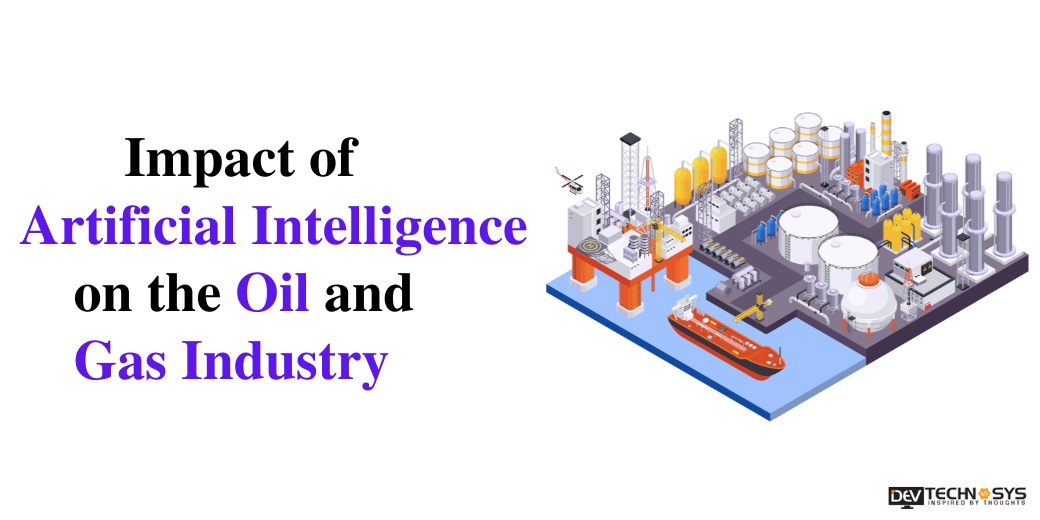
Nowadays, one of the most widely used technologies and technological tools is artificial intelligence. Over the past few years, the scale and complexity of AI’s potential and use cases have only grown. As businesses see the value in investing in this technology, the AI market in the oil and gas sector is predicted to develop rapidly over the next two years, reaching US $2.85 billion.
AI has the potential to transform the oil and gas industry by improving efficiency, reducing costs, and enhancing safety and sustainability. For example, AI can be used to analyze large amounts of data from drilling and production operations to optimize decision-making and identify opportunities for improvement.
It can also monitor and predict equipment failures, improving maintenance and reducing downtime. Additionally, AI can help oil and gas companies optimize their supply chain and logistics and improve environmental performance by identifying and reducing emissions.

Therefore, let’s see the potential impacts of AI in the oil and gas industry.
So let’s start the blog.
What is Artificial Intelligence?
Artificial intelligence refers to the ability of a computer or machine to perform tasks that would normally require human-level intelligence and judgment, such as learning, problem-solving, decision-making, and language understanding.
There are many different approaches to building AI systems, and the field encompasses a wide range of technologies and techniques, including machine learning, natural language processing, and robotics. However, if you want to create software for your business, you can take help from oil & gas software development services.
One of the main goals of AI research is to create systems that can perform tasks that would be difficult or infeasible for humans to accomplish or to do so more efficiently or accurately. It can involve developing algorithms that can learn from data, recognize patterns and make predictions, or developing systems that can interact with the world through sensors and actuators.
Impact of Artificial Intelligence on the Oil and Gas Industry
Here we have listed the potential impact of AI in the oil and gas industry.
Predictive Maintenance
One way that artificial intelligence (AI) has impacted the oil and gas industry is through the use of predictive maintenance. It involves using machine learning algorithms to analyze data from sensors on oil and gas equipment to predict when maintenance will be needed.
By identifying potential problems before they occur, companies can reduce the number of unplanned downtime events, which can be costly and disrupt operations. Predictive maintenance can also help companies to optimize maintenance schedules, which can reduce the overall cost of maintenance and improve equipment reliability.
Optimization of Drilling and Exploration
Artificial Intelligence can also be used to optimize drilling and exploration operations in the oil and gas industry. For example, machine learning algorithms can be trained on data from past drilling and exploration operations to identify patterns and predict the likelihood of finding oil or gas in a particular location. However, drilling processes will be boosted by the assimilation of AI and oil and gas software development.
It can help companies focus their efforts on the most promising areas, reducing the overall cost of exploration and increasing the chances of success.
Improved Safety
Artificial intelligence can also be used to improve safety in the oil and gas industry. For example, companies can use machine learning algorithms to analyze data from sensors on equipment to identify potential safety hazards and alert workers to take necessary precautions.
AI can also be used to monitor the behavior of workers and alert them if they are engaging in unsafe practices. By using AI to improve safety, companies can reduce the risk of accidents and injuries, improving overall productivity and lowering costs.
Improved Decision-Making
Artificial Intelligence can also be used to improve decision-making in the oil and gas industry. For example, machine learning algorithms can be used to analyze data from various sources, including market trends, production data, and weather forecasts, to help companies make informed decisions about investments and operations.
Companies can increase their competitiveness by using AI to improve decision-making and make more informed data-driven decisions. However, hire dedicated developers from an experienced software development company to develop robust oil and gas software.
Streamlining of Operations
Artificial intelligence can also be used to streamline operations in the oil and gas industry. For example, machine learning algorithms can be used to analyze data from sensors on equipment to identify bottlenecks and inefficiencies in the production process.
By identifying and addressing these issues, companies can increase their operations’ overall efficiency, reducing costs and increasing profitability.
Improved Customer Service
AI can also be used to improve customer service in the oil and gas industry by automating tasks such as answering customer inquiries or handling billing issues. It can free up human resources to focus on more complex tasks and improve the overall customer experience.
Conclusion
Artificial intelligence has significantly impacted the oil and gas industry, with applications ranging from predictive maintenance and optimization of drilling and exploration to improved safety and streamlining of operations. By using AI to analyze data and make more informed decisions, companies in the oil and gas industry can increase efficiency, reduce costs, and improve profitability.
However, to launch your own Oil & Gas Software, taking assistance from an experienced oil and gas software development company would benefit your business.
Author Profile
- I am the owner of the blog readree.com. My love for technology began at a young age, and I have been exploring every nook and cranny of it for the past eight years. In that time, I have learned an immense amount about the internet world, technology, Smartphones, Computers, Funny Tricks, and how to use the internet to solve common problems faced by people in their day-to-day lives. Through this blog, I aim to share all that I have learned with my readers so that they can benefit from it too. Connect with me : Sabinbaniya2002@gmail.com
Latest entries
 BlogJuly 15, 2025Manufacturing Success: Leveraging SMS Messaging in Salesforce for Order & Delivery Updates
BlogJuly 15, 2025Manufacturing Success: Leveraging SMS Messaging in Salesforce for Order & Delivery Updates  EducationJuly 14, 2025Here’s What Can Be Done When You Hire Someone to Take My Online Exam
EducationJuly 14, 2025Here’s What Can Be Done When You Hire Someone to Take My Online Exam Digital MarketingJuly 13, 2025The Future of .NET Security: Key Trends to Watch in 2025
Digital MarketingJuly 13, 2025The Future of .NET Security: Key Trends to Watch in 2025 BlogJuly 12, 2025Top 10 AI Video Generator Tools to Watch in 2025
BlogJuly 12, 2025Top 10 AI Video Generator Tools to Watch in 2025